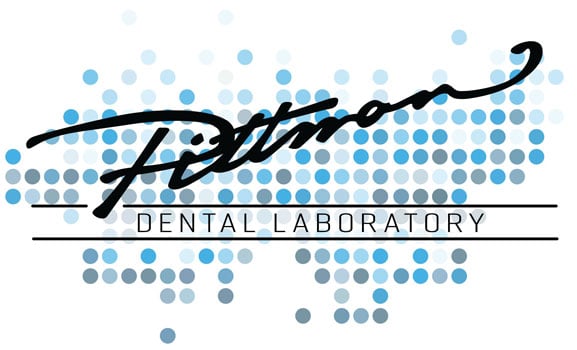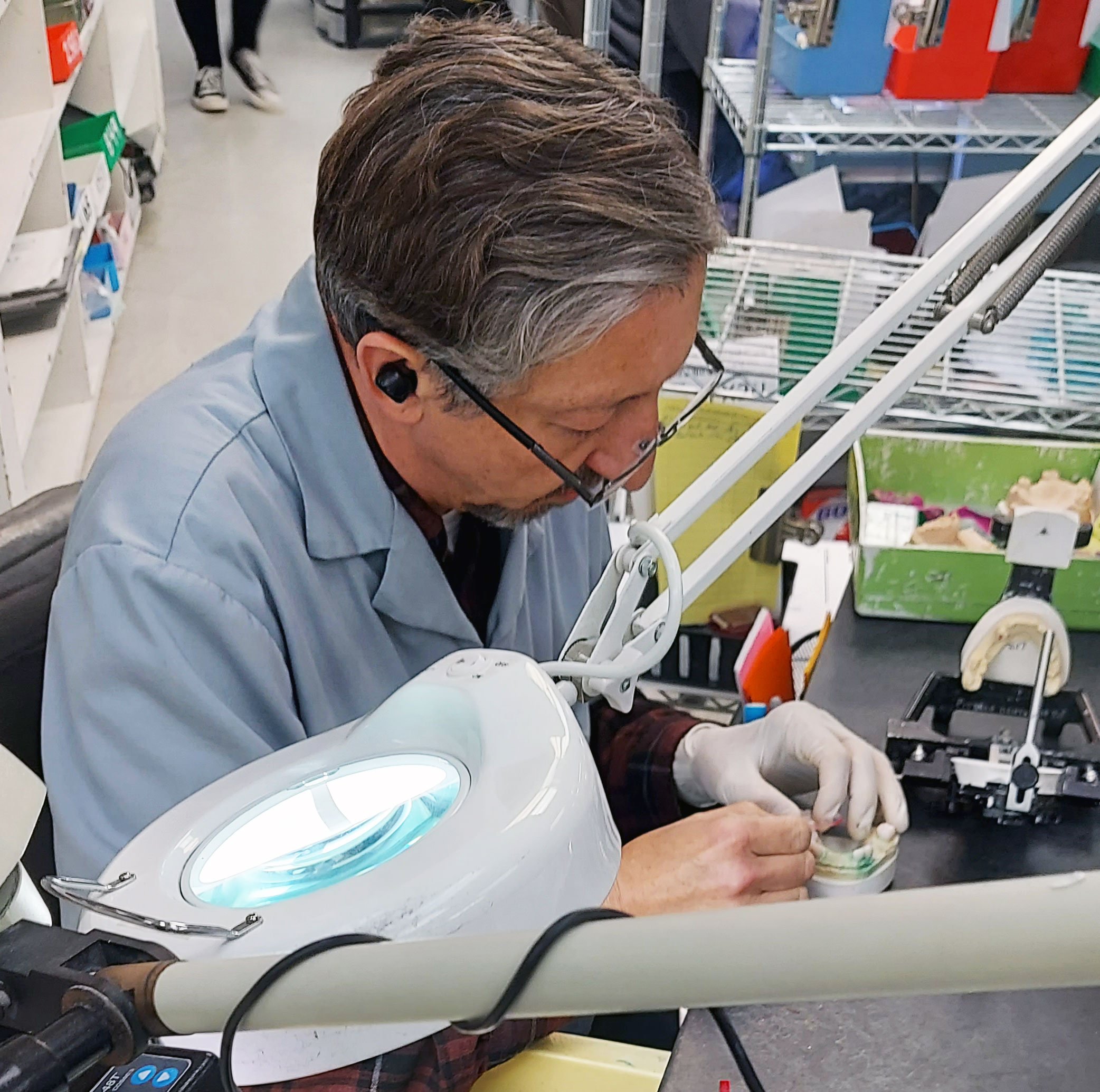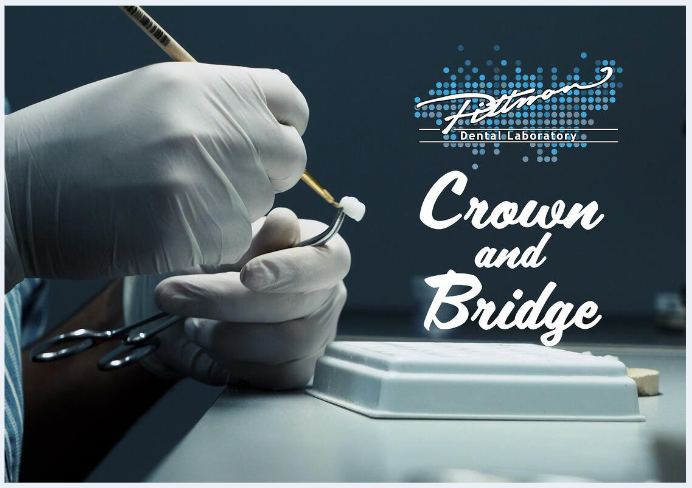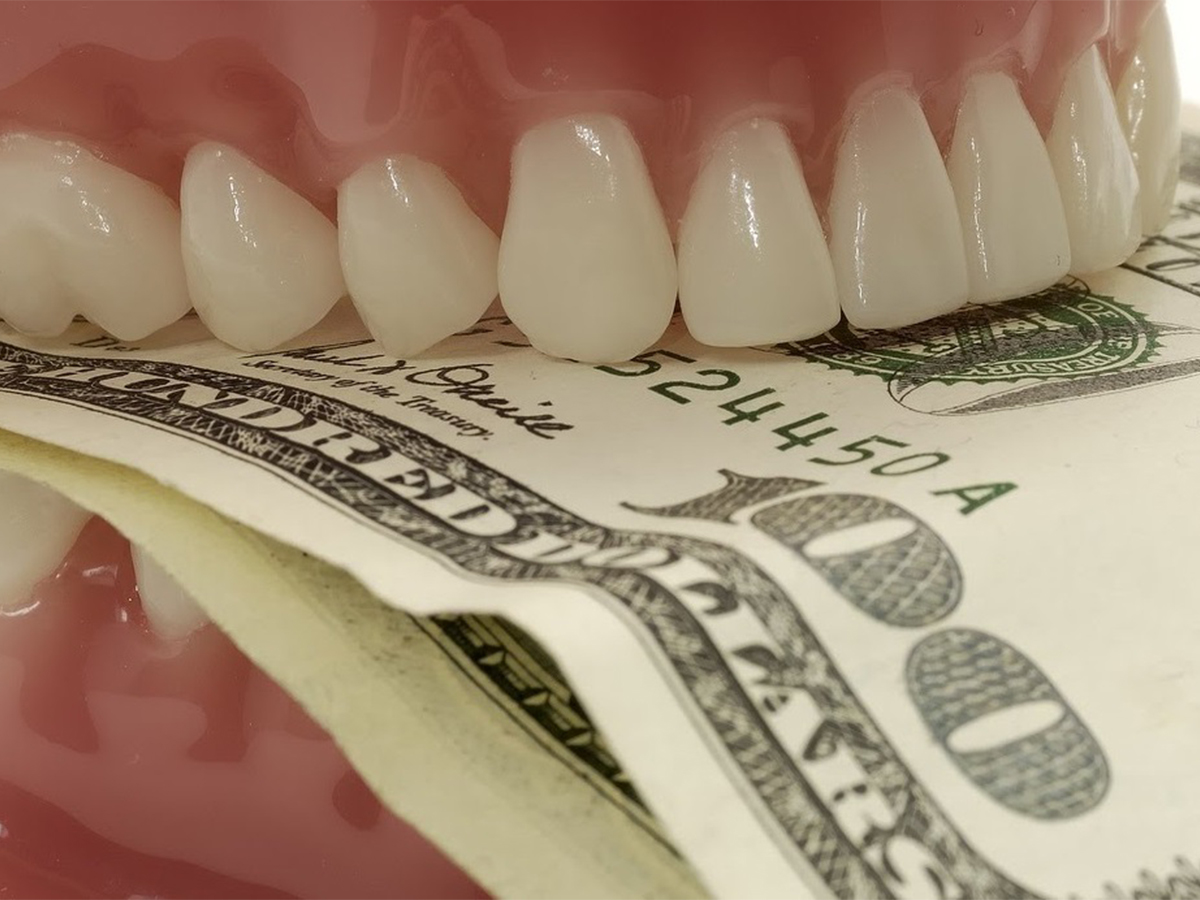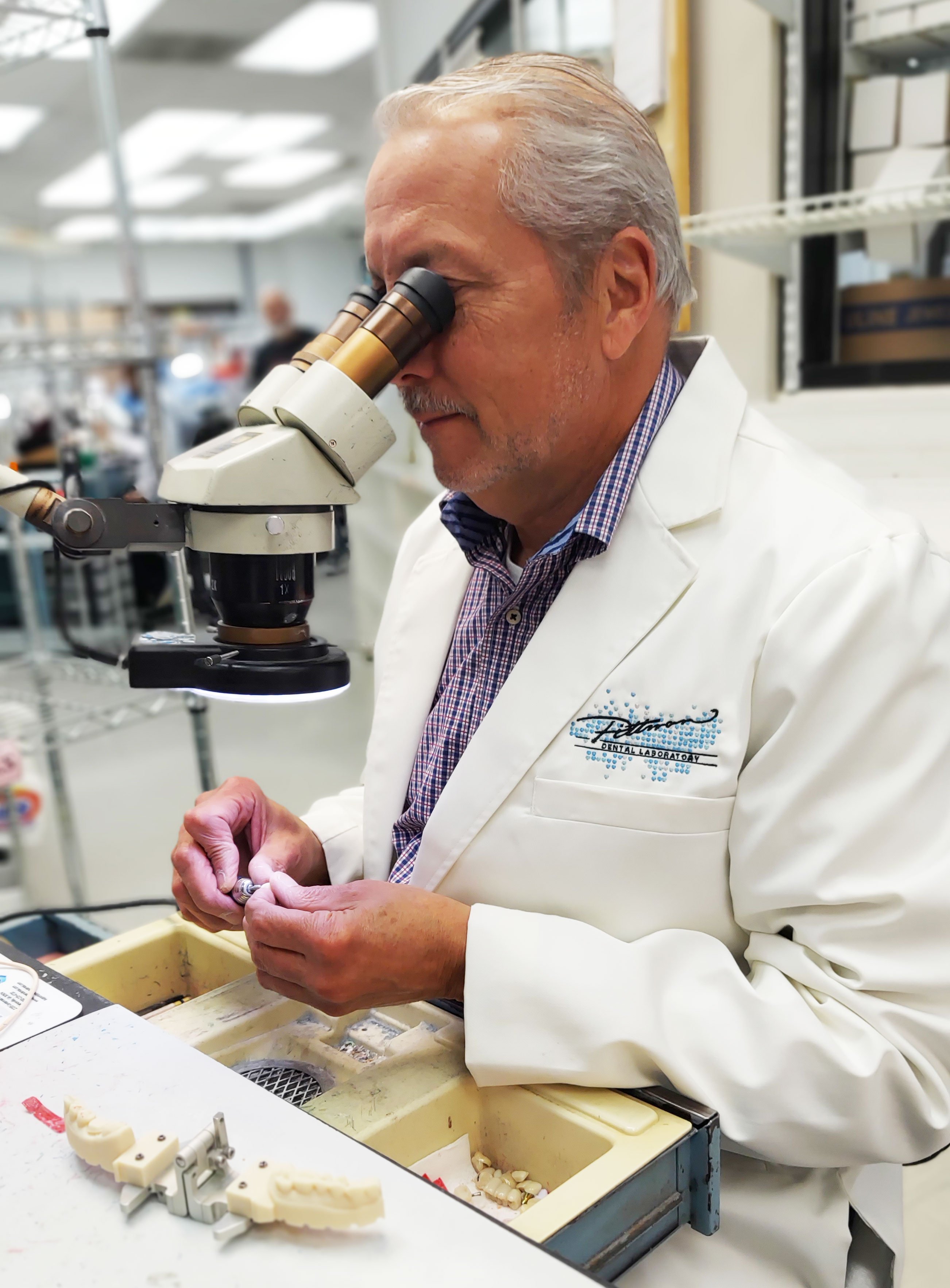At Pittman Dental Laboratory, delivering exceptional dental restorations is not just a promise—it’s a process. With over 50 years of experience serving dental care providers, Pittman has developed a meticulous 8-step quality control (QC) system designed to ensure every case meets the highest standards of accuracy, aesthetics, and functionality.
Pittman Dental Laboratory Blog
Inside Pittman Dental Laboratory’s 8-Step Quality Control Process: Precision at Every Turn
Topics: Remake Percentage, Dental Lab, quality control
Digital Rx vs. Handwritten Rx: Transforming Efficiency and Accuracy in Dental Practices
The shift from handwritten to digital prescriptions (Rx) in the dental industry marks a significant advancement for both doctors and dental labs. As technology reshapes every aspect of dental care, moving to digital Rx platforms is a step toward greater accuracy, efficiency, and streamlined workflows. One standout example is Pittman Dental Laboratory’s use of RxUpload, a cutting-edge digital Rx platform that allows doctors to submit cases seamlessly, saving time, reducing errors, and enhancing overall communication between labs and practices.
Why Digital Rx Outshines Handwritten Prescriptions
Handwritten prescriptions have long been the norm, but they come with several drawbacks. They are time-consuming to fill out, prone to legibility issues, and easily misplaced or damaged. Even a slight error in interpreting a prescription can lead to delays, costly reworks, and, most importantly, suboptimal patient outcomes.
Digital Rx platforms address these problems head-on. They allow dentists to create, review, and submit Rx information directly from their devices, ensuring clarity and reducing the chance of misinterpretation. Digital Rx forms are standardized, making it easy for dentists to provide consistent and accurate information. Each detail, from the type of restoration to shade specifications, can be precisely communicated, leaving no room for guessing.
The Advantages of RxUpload for Doctors and Labs
Pittman Dental Laboratory uses RxUpload to facilitate digital prescription submissions. This system brings numerous benefits to both doctors and the lab, creating a smooth, efficient case transfer process:
1. Improved Accuracy and Legibility: With RxUpload, doctors can type their prescription details, eliminating any confusion from hard-to-read handwriting. The software also prompts doctors to include all necessary information, reducing the likelihood of incomplete forms and minimizing back-and-forth clarifications.
2. Streamlined Workflow: RxUpload automates several parts of the submission process, allowing doctors to send cases to Pittman Dental Laboratory with just a few clicks. Once the Rx is submitted, the lab can begin working on the case immediately, without the delay that often accompanies manual data entry or clarification.
3. Enhanced Record-Keeping and Tracking: Digital Rx platforms like RxUpload improve record-keeping and case tracking. Each Rx is stored in the system, making it easy for both the doctor and lab to access and review details if questions arise. This feature is invaluable when cases require follow-ups, as all information is readily available without sifting through paper records.
4. Time and Cost Savings: By reducing errors, RxUpload saves time for both the doctor and lab. Fewer remakes and corrections mean faster turnaround times, less material waste, and lower costs—a win-win for the entire practice-lab relationship.
A Step Toward a Digital-First Future
As more dental practices adopt digital Rx platforms, the industry is moving toward a more efficient, reliable, and patient-centered approach to care. RxUpload exemplifies how technology is reshaping workflows, minimizing errors, and ultimately benefiting patients by ensuring every detail is accurately captured from prescription to product delivery. Embracing digital Rx solutions not only future-proofs dental practices but also builds stronger connections between doctors and labs, paving the way for consistent, quality outcomes in dental care. Sign up for Pittman's RxUpload digital Rx platform today by going to www.pittmandental.com/rxupload today!
Topics: Dental Lab, Dental Technology, Dental Industry, Digital Rx
Streamline Your Workflow with RxUpload: A Dentist's Dream for Lab Cases
Say goodbye to the days of phone calls and lost paperwork! RxUpload, a feature of Pittman Dental Laboratory is here to revolutionize the way you manage your lab cases. This user-friendly online portal empowers you with greater insight and control, streamlining communication and keeping you informed every step of the way.
Topics: Dental Lab, tech, Dental Technology, New Dental Practice
Navigating the Maze: A Comprehensive Guide to Crown and Bridge Material Selection
Pittman Account Managers often find themselves fielding one common question from dentists: "Which crown and bridge material is the best choice for my patient?" It's a crucial decision that can significantly impact the overall success of a dental restoration. To help demystify the world of crown and bridge material selection, let's explore the most popular options along with their respective strengths and weaknesses.
1. Porcelain-Fused-to-Metal (PFM):
- Strengths: PFM crowns combine the aesthetic appeal of porcelain with the durability of metal. They are suitable for both anterior and posterior restorations.
- Weaknesses: The metal substructure may result in a thin layer of porcelain, making it prone to chipping over time. PFM crowns may also pose challenges in achieving a perfectly natural translucency.
2. All-Ceramic:
- Strengths: All-ceramic crowns are renowned for their exceptional aesthetics, mimicking the natural appearance of teeth. They are a popular choice for anterior restorations.
- Weaknesses: While advancements have improved their strength, some types of all-ceramic crowns may still be more prone to fracture than their metal counterparts. They may not be ideal for posterior teeth with high biting forces.
3. Zirconia:
- Strengths: Zirconia crowns strike a balance between strength and aesthetics. They are highly durable and can withstand considerable biting forces. Zirconia is an excellent choice for both anterior and posterior restorations.
- Weaknesses: Achieving optimal translucency can be challenging, and some patients may find the appearance less natural compared to other materials.
4. Gold Alloy:
- Strengths: Gold alloy crowns are revered for their biocompatibility, durability, and minimal wear on opposing teeth. They are particularly suitable for posterior restorations.
- Weaknesses: The primary concern is the aesthetic aspect, as the gold color may not be visually appealing to all patients. Additionally, the cost may be a limiting factor for some.
5. E-max (Lithium Disilicate):
- Strengths: E-max crowns boast excellent aesthetics and strength. They are versatile and suitable for a wide range of indications.
- Weaknesses: While strong, E-max crowns may not be as durable as zirconia in high-stress areas. Careful consideration is needed for posterior restorations in patients with heavy occlusal forces.
6. Composite:
- Strengths: Composite crowns offer a cost-effective solution with good aesthetics. They are easy to adjust and repair.
- Weaknesses: Composite may not match the durability of other materials, and staining or wear over time can be concerns. They are often used as temporary solutions or for patients with budget constraints.
Pittman Dental Laboratory provides access to all of these crown and bridge materials. The Pittman Account Managers will suggest a crown and bridge material depending on various factors, including the patient's oral health, aesthetic preferences, and budget. Collaborating closely with your Pittman Account Manager, considering the specific needs of each case, will ensure the best possible outcome for your patients. Remember, no one-size-fits-all solution exists, but with informed decision-making, both you and your patients can confidently navigate the diverse landscape of crown and bridge material options with Pittman Dental Laboratory. For more information about crown and bridge Indications and Contraindications, download our guide, "Crown and Bridge Highly Aesthetic and Precise".
Topics: Dental Lab, crown and bridge
Unlocking Better Sleep: How Dental Appliances Can Help Manage Sleep Apnea
Sleep apnea is a prevalent sleep disorder affecting millions of people worldwide, and its consequences can be severe, from chronic fatigue to cardiovascular problems. While Continuous Positive Airway Pressure (CPAP) machines have been the go-to solution for years, not everyone finds them comfortable or effective. This is where dental appliances come into play, offering a lifeline to both patients and dentists looking to expand their services and generate more income.
Understanding Sleep Apnea:
Before diving into dental appliances, let's briefly understand sleep apnea. It is characterized by interrupted breathing during sleep due to blocked airways. There are two primary types: obstructive sleep apnea (OSA) and central sleep apnea. OSA, the most common type, occurs when throat muscles relax excessively, causing airway obstruction.
The Role of Dental Appliances:
Dental appliances, also known as mandibular advancement devices (MADs) or mandibular repositioning devices (MRDs), have gained recognition as a comfortable and effective alternative for treating mild to moderate OSA. These devices work by repositioning the lower jaw and tongue, which helps to keep the airway open during sleep.
Why Dentists Should Offer Dental Appliances:
1. Diversify Services: By incorporating dental appliances into their practice, dentists can diversify their services, attracting a broader range of patients. This expanded offering can be a valuable source of additional income.
2. Patient-Centered Approach: Many patients with sleep apnea are hesitant to use CPAP machines due to their bulkiness and noise. Dental appliances offer a more patient-friendly solution, increasing compliance and patient satisfaction.
3. Collaboration Opportunities: Dentists can collaborate with sleep specialists and physicians to create a holistic approach to treating sleep apnea. This collaboration can enhance patient care and referrals.
4. Long-Term Patient Relationships: Offering sleep apnea treatment through dental appliances fosters long-term relationships with patients who may require ongoing care, including appliance adjustments and replacements.
Steps for Dentists to Get Started:
1. Training: Dentists should seek training and certification in dental sleep medicine to ensure they can provide the best care to their patients.
2. Patient Screening: Implement a screening process to identify potential sleep apnea patients during regular dental check-ups.
3. Customized Appliances: Work closely with patients to design and create customized dental appliances tailored to their specific needs.
4. Collaboration: Establish relationships with sleep specialists and physicians to build a network for referrals and comprehensive care.
In conclusion, dental appliances are a valuable addition to any dental practice. They provide an effective, patient-centered solution for sleep apnea while also offering dentists the opportunity to expand their services and generate additional income. Pittman Dental Laboratory offers several sleep apnea appliances for your patients:
Topics: Dentist, Dental Lab, new patients, aquiring new patients, night guards, New Dental Practice
The Biting Truth: How Inflation Impacts the Dental Industry
Inflation is a term that frequently makes headlines, impacting various sectors of the economy. While it may not be the first industry that comes to mind, the dental industry is not immune to the effects of rising prices. In this blog post, we'll explore the ways in which inflation can sink its teeth into the dental industry and the consequences it brings.
1. Rising Material Costs:
One of the most immediate effects of inflation on the dental industry is the surge in material costs. Dental practices rely on a wide range of supplies, from dental instruments to restorative materials like crowns and fillings. As the prices of these materials increase, dental professionals are forced to either absorb the additional costs or pass them on to patients in the form of higher fees for procedures.
2. Impact on Small Practices:
Smaller dental practices may face even greater challenges in coping with inflation. They often lack the purchasing power of larger dental chains, making it harder to negotiate favorable prices with suppliers. As a result, they may see their profit margins squeezed, making it more difficult to invest in new equipment or hire additional staff.
3. Access to Care:
Inflation can also affect access to dental care, particularly for those without comprehensive insurance coverage. As the cost of dental procedures rises, individuals may postpone or forego necessary treatments due to financial constraints. This can lead to more serious dental issues down the line, potentially increasing the overall cost of care.
4. Employee Compensation:
Dental practices need skilled and qualified staff to provide quality care. Inflation can drive up the cost of living, making it necessary for dental practices to increase employee wages to retain talent. This added financial burden can put additional pressure on practice finances.
5. Investment in Technology:
The dental field relies heavily on technological advancements for better patient care and streamlined processes. Inflation can make it challenging for dental practices to invest in new technologies, hindering their ability to stay competitive and provide the best care possible.
In conclusion, inflation may not be as readily associated with the dental industry as it is with others, but its effects are nonetheless significant. Rising material costs, challenges for smaller practices, limited access to care, increased employee compensation demands, and hindered technological advancements all contribute to the complex relationship between inflation and the dental industry. Pittman Dental Laboratory and Surgical Solutions must remain vigilant to navigate these challenges as well. At Pittman Dental Laboratory and Surgical Solutions, we are continually engaged in negotiations with our suppliers, tirelessly striving to secure the finest materials at the most competitive prices.
Topics: marketing your practice, Dentist, Dental Lab, aquiring new patients, Dental Technology, New Dental Practice, Dental Industry, Inflation
Utilizing the products and services offered by Pittman Dental Laboratory.
Utilizing the products and services offered by Pittman Dental Laboratory can provide several advantages for a dental practice. Here are 8 key benefits:
Topics: Dentist, Dental Lab, Dental Technology, New Dental Practice, Dental Lab Starter Kit
Transforming Dentistry: Tech Innovations in the Digital Laboratory
In the ever-evolving landscape of dentistry, technology continues to play a pivotal role in revolutionizing patient care and enhancing dental practices. From digital imaging and diagnostics to advanced laboratory equipment, dentists now have access to a range of cutting-edge innovations that are reshaping the industry. In this blog, we will explore some specific tech innovations that Pittman Dental Laboratory has invested in, that is now helping dentists and their practices achieve their goals.
Topics: oral scanners, intraoral scanner, Dentist, Dental Lab, hybrid workflow, tech
Topics: Remake Percentage, Dentist, Dental Lab Remake Percentage, Dental Lab
